Articles in the Reviews Category
Great Leap Forward, Reviews »
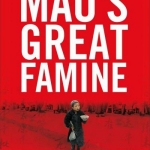
Excerpts from Cormac Ó Gráda’s review of new book by Dikötter, Mao’s Great Famine. “MGF may become the best-known account of the GLF famine for a while. But should it? It is not a comprehensive account of the famine; it is dismissive of academic work on the topic; it is weak on context and unreliable with data; and it fails to note that many of the horrors it describes were recurrent features of Chinese history during the previous century or so…”
Husunzi, Ongoing Struggles, Reviews »
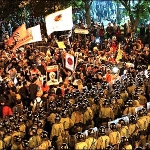
Extracts from and comments on Ho-fung Hung’s article on class relations in Hong Kong politics, “Uncertainty in the Enclave,” in the new issue of New Left Review. I focus on working class formation and resistance in the 1950s-1960s, and the recent revival of HK’s anti-authoritarian left through mobilizations against the WTO and urban renewal evictions, and as part of the left wing of HK’s democracy movement, whose distance from the right wing seems to grow as life becomes more precarious for much of HK’s younger population.
Chinese Revolutionary History, Husunzi, Reviews, Rural China »
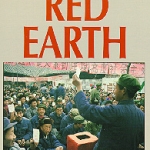
John Lowrie criticizes my alleged use of the concept of “state capitalism” to analyze Mao-era socialism and the “people’s commune” system (in my review of Red Earth by Stephen Endicott, published issue #3 of China Left Review), and he proposes an alternative program for the transition to communism. Here I respond to both comments, clarifying the position introduced in my review.
Contemporary China, LangYan, Reviews »
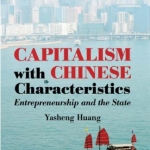
Joel Andreas reviews Huang Yasheng’s Capitalism with Chinese Characteristics in the latest New Left Review, which also contains a response from Huang.
Andreas: “Huang’s diagnosis of the maladies afflicting rural China is clearly informed by one of the foundational myths of neo-classical economics—the ideal of competitive capitalism. Free competition, it is assumed, creates a level playing field on which small entrepreneurs naturally flourish. If small entrepreneurs are squeezed out, it must be the fault of the state, which tips the playing field to the advantage of favoured players. The reality is quite different. Market competition intrinsically centralizes property without the need for state intervention. Winners squeeze out losers, amass capital, capture market share and block new entrants. The state often facilitates this process by favouring the winners, but it can also inhibit it by protecting the weaker players. Over the last two centuries, peasants and small rural entrepreneurs have been the main losers as capitalism has swept across the globe.”
Chinese Revolutionary History, jj blog, Reviews »
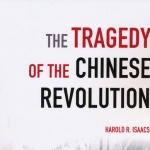
Haymarket books has just reprinted Harold Isaacs‘ 1938 work on the ‘second’ Chinese revolution (1925-27): The Tragedy of the Chinese Revolution.
The book has gone through three editions, and Haymarket is publishing the first (more on this anon). The entire first edition is available online at marxists.org, but who among you dear readers doesn’t hanker after the pleasure of real paper in your hands?
The book was the first work of its kind to examine the minutiae of the 1925-1927 revolution. Isaacs spent four years writing the book, and it shows. It’s …
